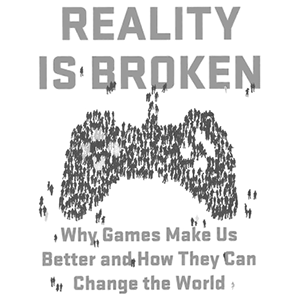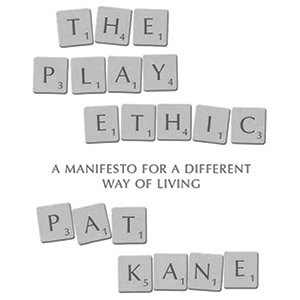Thanos is a fictional character appearing in comic books and other media published by Marvel Comics. He is the villainous ruler of Titan, Saturn’s largest moon. The character first appeared in ‘Iron Man #55’ in 1973, and was created by writer-artist Jim Starlin.
The character’s name is a derivation of Thanatos, the personification of death and mortality in Greek mythology.
read more »
Thanos
Grand Admiral Thrawn
Grand Admiral Thrawn is a fictional character and a major antagonist in the ‘Star Wars’ universe. He first appeared in ‘Heir to the Empire,’ part of Timothy Zahn’s Thrawn trilogy published between 1992 and 1994. In these books, set five years after ‘Return of the Jedi,’ Thrawn has assumed command of the remaining forces of the Empire and is planning to battle the New Republic.
Zahn describes Thrawn’s command style as considerably different from that of Darth Vader and other typical Imperial commanders; instead of punishing failure and dissent, Thrawn promotes creativity among his crew and accepts ideas from subordinates. He is a tactical genius who has made extensive study of military intelligence and art, and is willing to retreat instead of making a stand in a losing battle. His study of his enemies’ artwork gives him insight into their thought processes and cultures, allowing him to create highly effective tailor-made strategies.
read more »
Día de los Muertos
Day of the Dead (‘Día de los Muertos’) is a Mexican holiday where people gather to pray for and remember friends and family members who have died. The celebration takes place on November 1, in connection with the Catholic holidays of All Saints’ Day and All Souls’ Day (November 2).
Traditions connected with the holiday include building private altars honoring the deceased using edible sugar skulls, marigolds, and the favorite foods and beverages of the departed and visiting graves with these as gifts. They also leave possessions of the deceased. Scholars trace the origins of the modern Mexican holiday to indigenous observances dating back hundreds of years and to an Aztec festival dedicated to the goddess Mictecacihuatl (Queen of the Underworld).
read more »
Ig Nobel Prize
The Ig Nobel Prizes are a satirical award given each year in early October for ten unusual or trivial achievements in scientific research. The stated aim of the prizes is to ‘first make people laugh, and then make them think.’
Organized by the scientific humor magazine ‘Annals of Improbable Research’ (AIR), they are presented by a group that includes Nobel Laureates at a ceremony at Harvard University’s Sanders Theater, and they are followed by a set of public lectures by the winners at MIT. The name is a play on the words ‘ignoble’ (‘characterized by baseness, lowness, or meanness’) and the Nobel Prize. The pronunciation used during the ceremony is [ig-noh-bel], not like the word ‘ignoble.’
read more »
Obesity in Pets
Obesity in pets is common in many countries. Rates of overweight and obesity in dogs in the United States ranges from 23% to 41% with about 5.1% obese. Rates of obesity in cats was slightly higher at 6.4%. The risk of obesity in dogs but not cats is related to whether or not their owners are obese. Obese dogs and cats have a higher incidence of arthritis and heart disease.
In fact, fatness to the point of health impairment is enough of a concern that Pfizer developed and got Food and Drug Administration-approval for a drug (Slentrol) to treat canine and feline obesity. Pet owners have been prosecuted for cruelty to animals due to their dangerously obese dogs. Two British brothers were cited in 2006 for cruelty and neglect of their chocolate labrador retriever, ‘who was allegedly made so obese by his owners that he ‘looked like a seal’ and could barely waddle a few steps.’
read more »
Video Game Addiction
Video games addiction is use of computer and video games to make life bearable. Instances have been reported in which users play compulsively, isolating themselves from family and friends or from other forms of social contact, and focus almost entirely on in-game achievements rather than other life events, and exhibit lack of imagination and mood swings. There is no formal diagnosis of video game addiction in current medical or psychological literature.
Inclusion of it as a psychological disorder has been proposed and rejected for the next version of the Diagnostic and Statistical Manual of Mental Disorders (DSM). However, some scholars suggest the effects (or symptoms) of video game overuse may be similar to those of other proposed psychological addictions. Video game overuse may be like compulsive gambling, an impulse control disorder.
read more »
Game Brain
Game brain is a term coined by Japanese physiologist Akio Mori referring to the long term effects of video games on the human brain. Mori originally coined the term and presented the concept in his 2002 book ‘The Terror of Game Brain.’ Mori performed an experiment at Tokyo’s Nihon University designed to measure the effect of video games on human brain activity by examining beta waves (brainwaves associated with normal waking consciousness).
Mori claims his study revealed that people who spend long periods playing video games have reduced activity in the brain’s pre-frontal region, which governs emotion and creativity. Mori asserts that side effects can include loss of concentration, an inability to control temper, and problems socializing or associating with others. His theory has gained some recognition in popular culture, especially among parents who believe that video gaming can have detrimental effects on child development.
read more »
Finite and Infinite Games
Finite and Infinite Games is a book by religious scholar James P. Carse. With this philosophy text, Carse demonstrates a way of looking at actions in life as being a part of at least two types of what he describes as ‘games,’ finite and infinite. Both games are played within rules, as agreed upon by the participants; however, the meaning of the rules are different between the two types of games.
The book stresses a non-serious (or ‘playful’) view of life on the part of ‘players,’ referring to their choices as ‘moves,’ and societal constructs and mores as ‘rules’ and ‘boundaries.’ He regularly employs familiar terms in specialized ways, but casts them as associated with finite or infinite play & players. Boundaries are ‘rules’ that one must stay within when playing a finite game, in contrast with horizons, which move with the player, and are constantly changing as he or she ‘plays.’ In short, a finite game is played with the purpose of winning (thus ending the game), while an infinite game is played with the purpose of continuing the play.
read more »
Gamification
Gamification is the use of game mechanics and game design techniques in non-game contexts. Typically gamification applies to non-game applications and processes, in order to encourage people to adopt them, or to influence how they are used.
Gamification’s proponents argue that it works by making technology more engaging, by encouraging users to engage in desired behaviors, by showing a path to mastery and autonomy, by helping to solve problems and being more engaging, and by taking advantage of humans’ psychological predisposition to engage in gaming. Available data from gamified websites, applications, and processes indicate potential improvements in areas such as user engagement, ROI, data quality, timeliness, and learning.
read more »
Game Studies
Game studies or ‘gaming theory’ is an academic discipline that deals with the critical study of games. More specifically, it focuses on game design, players, and their role in society and culture.
Game studies is an interdisciplinary field with researchers and academics from a multitude of other areas such as computer science, psychology, sociology, anthropology, philosophy, arts and literature, media studies, communication, theology, and more. Like other media disciplines, such as television studies and film studies, game studies often involves textual analysis and audience theory. Game studies tends to employ more diverse methodologies than these other branches, however, drawing from both social science and humanities approaches.
read more »
Positive Effects of Video Games
Numerous researchers have proposed potential positive effects of video games on aspects of social and cognitive development and psychological well-being. It has been shown that action video game players have better hand-eye coordination and visuo-motor skills, such as their resistance to distraction, their sensitivity to information in the peripheral vision and their ability to count briefly presented objects, than non-players.
With the development of the PlayStation Move, Kinect and Wii, video games can also help develop motor skills through full body movement. Video games also develop the individual’s intelligence, and in social games develop the social capabilities of the individual. Another way in which the usage of video games might provide a benefit is in the relief of stress.
read more »
Everything Bad Is Good for You
‘Everything Bad Is Good for You: How Today’s Popular Culture Is Actually Making Us Smarter’ is a non-fiction book written by American popular science author Steven Berlin Johnson.
Published in 2005, it is based upon Johnson’s theory that popular culture – in particular television shows and video games – has grown more complex and demanding over time and is improving the society within terms of intelligence and idea. The book’s claims, especially related to the proposed benefits of television, drew media attention.
read more »













